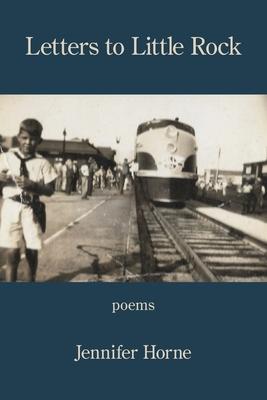-Rodney Jones, winner of Kingsley Tufts Prize and National Book Critics Circle Award
Jennifer Horne's fourth book of poems, Letters to Little Rock, commemorates a beloved father through a variety of poem-letters addressed to him after his death that trace his life from an impoverished childhood in Caddo Gap, Arkansas, to a comfortable adulthood as a lawyer in Little Rock. Written in a variety of poetic forms which articulate yet struggle to control grief, the book explores the timeless, sorrowful fact that despite all the love, all the shared experiences, one cannot fully know one's parent. Near the end of the book, she asks, "Why didn't I understand? / Why didn't you tell me? ... / Why didn't you show me? ... / Why didn't you let me? ... / Why / didn't I see?"
-Ann Fisher-Wirth, author of Paradise Is Jagged and coeditor of The Ecopoetry Anthology: Volume II
Cast in four sections, former Alabama Poet Laureate Jennifer Horne's Letters to Little Rock arranges second person addresses to her father in verse, shaping the experience of grieving in a series of eloquent poems. I'm reminded of the great Carolinian poet Fred Chappell's epic, Midquest, which he called "something like a verse novel" in a variety of forms representing different states of mind. Parallels are striking as Horne calls forth a deep and wistful tenderness following the course of her father's life. Like Chappell's project, which he compared to "the sampler, each form . . . a different fancy stitch," there is keen craftsmanship at play in these poems. In either case, mastery has come to the service of what is, "after all, in its largest design, a love poem."
-Sean Sexton, author of Portals and May Darkness Restore
